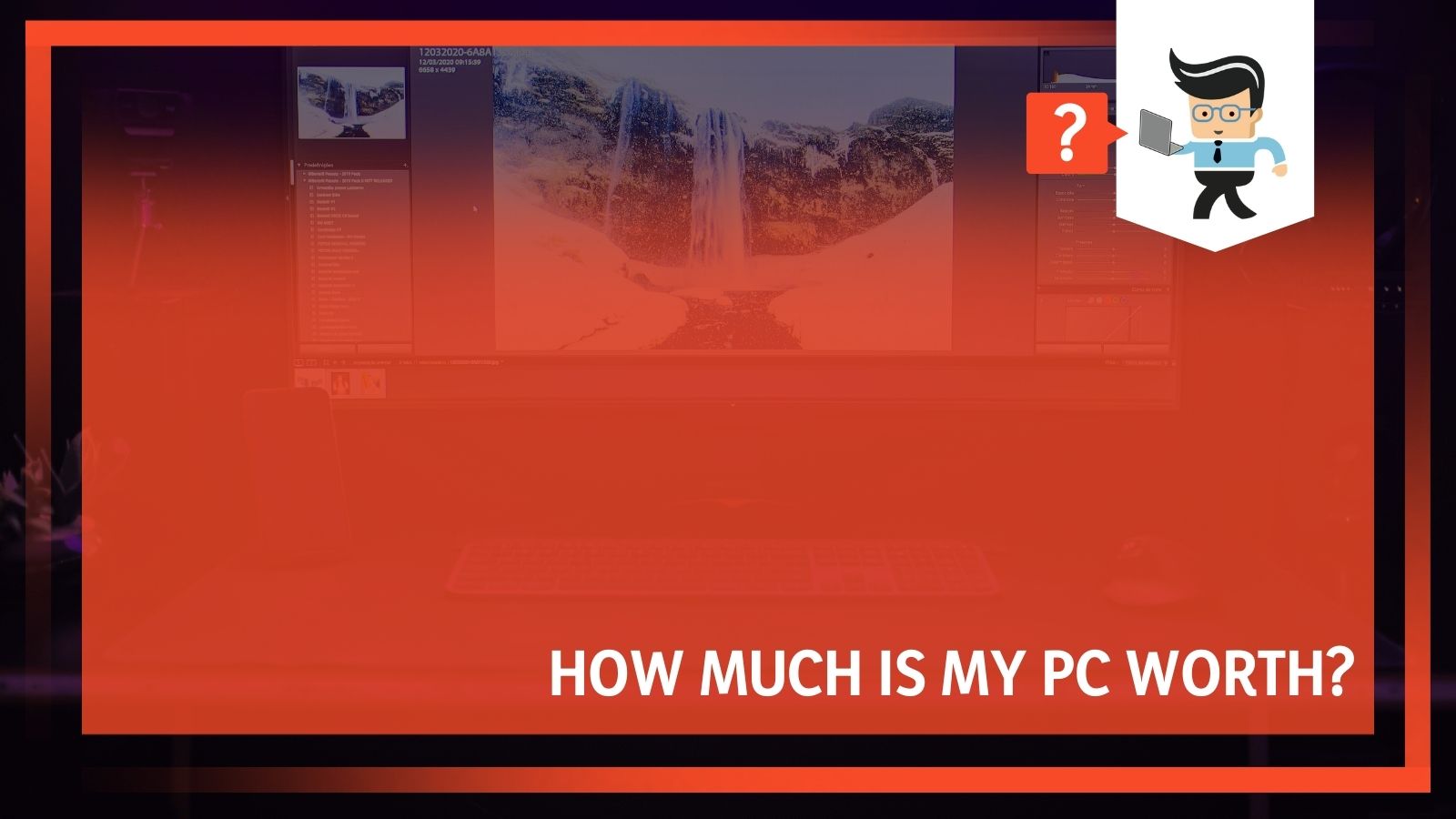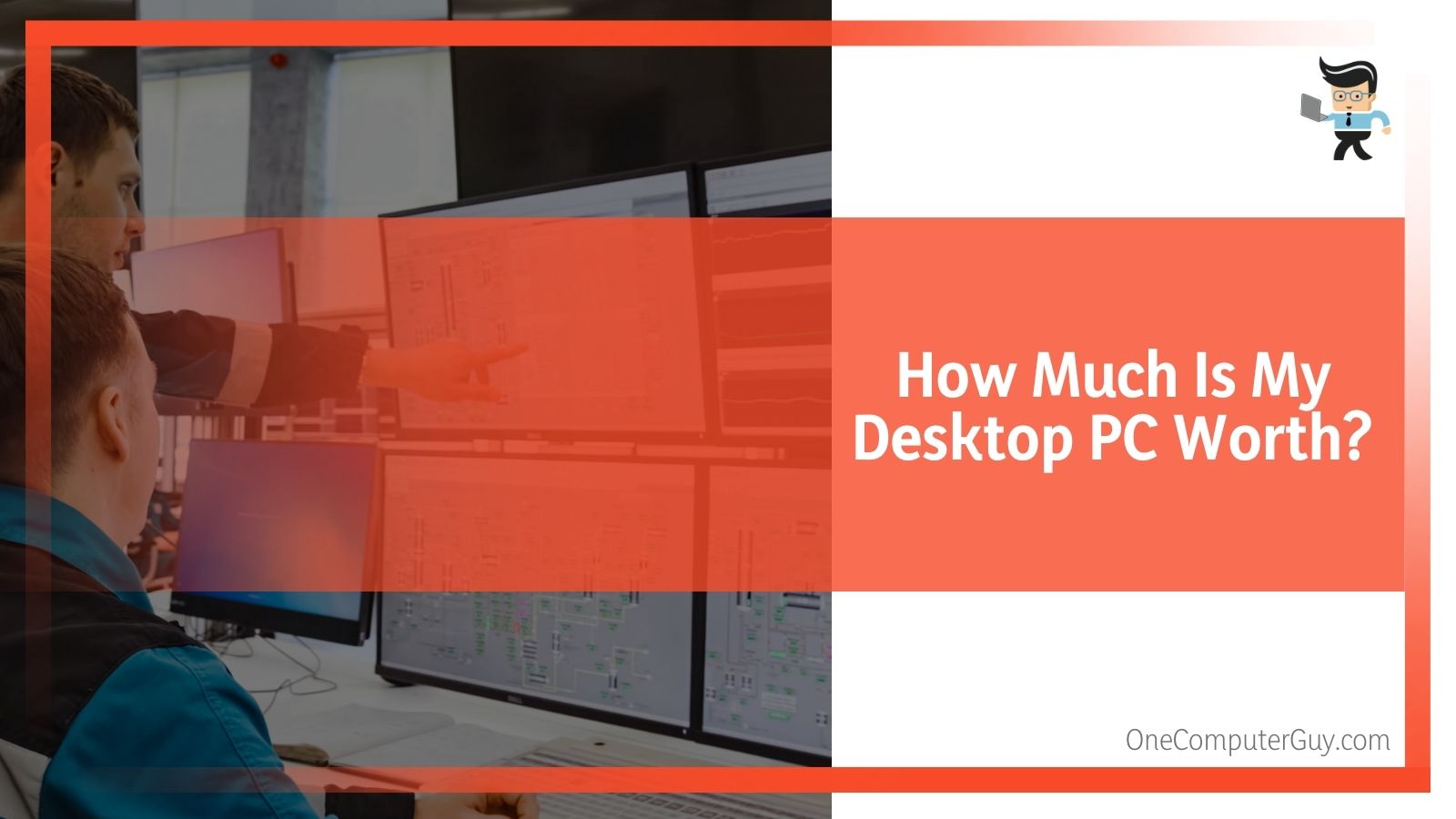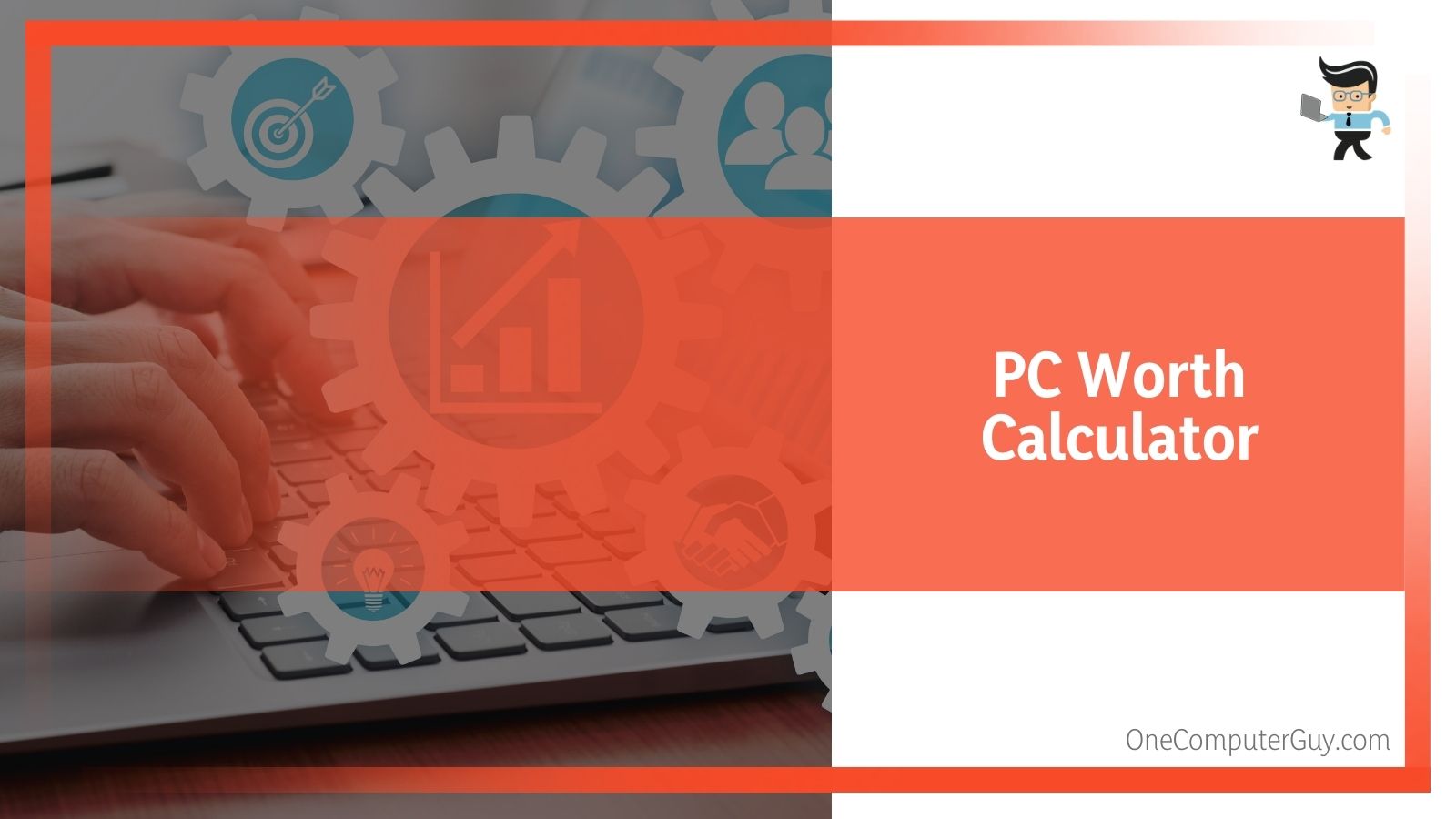Computer resale value is important for anyone looking to buy or sell a used computer.

Contents
Consider the following when researching and determining the resale cost:
- Overall computer and component age
- Technology runs on a cycle, and the parts that run your computer age over time: greatly affects resale value
- Chips change with every technological cycle
- Hard drive space doubles every 12 to 18 months
- CPU capabilities increase every two years
- Graphics cards grow faster than any other segment of the market
- Software which was used on the computer: moderately affects resale value
- Though subscriptions can sometimes be transferred, only perpetual licenses tied to the workstation will follow upon resale.
- A computer with proprietary software and licenses installed on it may be worth more than a computer without any bundled offering.
- Where and how the computer was used: minorly affects resale value
- Enterprise or personal environment
- Running specialized programs (gaming, server workload, high performance computing)
- Exposure to environmental damage such as cigarette smoke and other contaminants
- The condition of the casing and components: moderately affects resale value
- Inspect all outer surfaces for scuffs, scratches, abrasions, etc.
- Check interior components for water and/or moisture damage if system was liquid cooled
- Make sure all internal components are functional and free of dust and debris before seeking to resell your computer
- Chips change with every technological cycle
- Technology runs on a cycle, and the parts that run your computer age over time: greatly affects resale value
The landscape of technology is always changing. What was popular six years ago may not run the latest applications as quickly or efficiently today.
In these cases, a computer’s value may be diminished unless it has specific high-value hardware used in professional scenarios; video editing, video broadcasting and graphics processing all require higher performance components in a computer.
There are tools and resources available to find the resale value of your computer, and in this post you will learn how to find out the price a computer should be for resale.
How much is my laptop worth?
Laptops come from the manufacturer with a particular set of specifications, many times workstations are custom ordered. Finding out how much your laptop is worth may be as simple as entering a service code or tag into the manufacturer’s support portal to get the shipping specifications of that particular build.
Modifications made to your laptop over its lifetime, such as upgrading the RAM or putting in a new hard drive, are key to increasing computer resale value. Your calculation need to take into account all of the hardware and software that you will be listing. Take the total of your calculation and compare with online resellers to set a competitive price.
Understanding your technological needs and planning for the eventual obsolescence of your devices is important to projecting future replacement costs, value over time is one metric to use when determining if the resale or purchase is a good deal. Taking advantage of
recouping a few hundred dollars from your old model is an opportunity not to squander.
High performance workstations and gaming PCs from well known brands such as: Dell (in particular Alienware), HP, or ASUS will have a higher resale value due to unique designs and name recognition. Other brands such as iBUYPOWER, Cyberpower, and Origin will have a more consistent baseline value due in part to the workstation’s overall value being tied more to its components and less on branding.
Once you have decided on a replacement laptop with specifications meeting your needs, it’s time to make a deal. There are specialized companies that provide services to aid in reselling your computer on commission. Many of these companies accept trade in’s to be used as credit toward a purchase that you plan to make; it is a good idea to understand how much your computer is worth beforehand so you can determine if you are getting a good deal.
The technological cycle is constantly refreshing, so when your laptop is more than a few years old, it may not fetch anything near what you paid for it. This is why it is important to take note of these above factors. Even small, inexpensive, upgrades can potentially add a significant amount to your computer resale value.
How much is my desktop PC worth?
Desktop PC pricing for resale is trickier than laptops because there is inherently so much room for customization, even in a mass produced desktop versus a laptop. Online retailers making prebuilt computers will make arrangements for a better deal on components because they buy them in bulk. When you resell your computer the difference between what you paid for it and what you will get from the components is smaller and therefore a better value overall.
 Part of the beauty of a custom built desktop PC in many cases is modularity. Old components can all be refreshed for less than replacing the whole computer. However, over the last number of years, more and more mass producers are making it difficult to upgrade components within. Plastic spacers and unique airflow or liquid cooling solutions all impact what can be upgraded. Largely, this is a negative impact on computer resale value because eventually the entire computer must be replaced.
Part of the beauty of a custom built desktop PC in many cases is modularity. Old components can all be refreshed for less than replacing the whole computer. However, over the last number of years, more and more mass producers are making it difficult to upgrade components within. Plastic spacers and unique airflow or liquid cooling solutions all impact what can be upgraded. Largely, this is a negative impact on computer resale value because eventually the entire computer must be replaced.
Desktop PCs can be easily enhanced and upgraded, meaning their hardware value can vary widely. From complete all in-one bundles to custom builds with top of the line hardware, computer resale value is based heavily on how well components perform and their overall age. Similar to how small upgrades may drastically affect your laptop resale value, upgrades with desktops can be much larger in scope and will have a greater impact on your computer resale value. Online retailers will provide a decent comparison for component pricing, but be careful when relying on these prices for your calculations.
Use online resources as a pricing guide, but don’t forget to asses events occurring in the industry as they can have major impacts to component and computer resale value. Take for example the many cryptocurrency booms that have occurred with GPU products. In some cases, a specific high-end GPU was worth a thousand dollars more than the motherboard it was plugged into.
Many had taken advantage of this risky venture and had sold these components during this heightened time with the goal of waiting for the next refresh cycle so they could purchase newer, more powerful hardware. In terms of component resale value, these events end up being a big plus.
Prebuilt computers such as the Alienware Aurora will end up having a more stable resale value over time, this is due to a number of additional factors not relating to branding. High performance desktop PCs are built with more efficient, more reliable, and generally more powerful components than mobile and entry/mid-level consumer versions. These high performance PCs are built to withstand the stress placed on them over long periods of time. This is highly positive for computer resale value, thus as your needs change, so can your hardware. Desktop components will maintain a higher value over time compared to laptop and entry level components.
If you are posting your computer on a site for sale like Craigslist, you can start by listing the computer for what you feel is a fair value and if you don’t get any responses back, you can slowly reduce the price until someone makes an offer.
PC Worth Calculator
How to determine the value of your computer:
(Hardware + software) – Damage and adjustments + any peripherals (monitor, keyboard, etc.) = Total Computer value
There are many online tools available as a PC worth calculator for a used laptop, desktop, or Mac. When you use one of these tools, you need to know what the components inside your computer are.
 This means you should go into the properties of your computer and find the specifications for:
This means you should go into the properties of your computer and find the specifications for:
- Central processing unit (CPU) of the computer
- Random Access Memory (RAM) measured in gigabytes, with speeds in MHz, and whether it supports dual and quad channel
- Motherboard
- Graphics Card
If you go to a website such as Gadget Value or Used Price, they will have fields where you can fill in the computer components you have and they will give you an estimate of how much your PC will be worth to someone who is looking for a used computer to purchase.
Appraise a Computer
Local computer retailers can be asked to appraise your setup if you take it to them – many will offer additional services if you also agree to purchase the computer through them. They will likely look up the value of the components in your used computer like you can do and then propose a “best offer” based on their appraisal. Customized builds compared to brand name manufacturers will generally always have different prices for the same components – except in some desktop scenarios where upgrades and future investments may be limited, thus limiting your computer resale value.
In the event this local retailer assists you in reselling or if they accept a trade-in, be assured that it is normal when will tell you that your computer is worth less than it actually is. This occurs because resellers only make a profit from the difference between what you are willing to accept and what they think someone else is willing to pay for it, the margins are small and it is worth it to negotiate. Don’t be afraid to shop around for retailers to appraise a computer.
Computers built for gaming fetch higher prices than general use or entry level computers due to them being made with better quality and higher performing processors, graphics cards, memory and motherboards.
Custom PC Value
Custom PC’s are where the widest price range will occur. If you bought a prebuilt PC from a boutique shop and did not upgrade to name-brand components, your machine will not be worth as much as one with recognizable brands for motherboard, memory, graphics cards, and processors. To keep your custom pc value high, look to make smart purchases where possible and keep your desktop PC in tip-top shape. This way when the time comes to resell, you end up getting a better deal and got to take advantage of the upgraded hardware in the meantime.
Included software from official sources can be a great value-add, however some products are difficult to transfer and without proper transfer of license can make for a difficult time reselling the PC with software as a bundle. Be wary of buying or selling PCs with software intended to be a value-add – ensure to follow all local regulations and license terms and avoid a shady deal.
Conclusion
Laptops are easier to find a stable resale value because of inherent consistency in product across different lines of laptops. Desktops have varying resale values based on customization options selected when putting the machine together. In almost every case, it is worth taking the time to go over how your computers compares in the market today. Used computer value is ever fluctuating and every passing day the numbers change. Plan ahead and look for opportunities to resell as many components as possible, take care of your workstation, and understand your technology needs – this will give you the greatest computer resale value over time.







